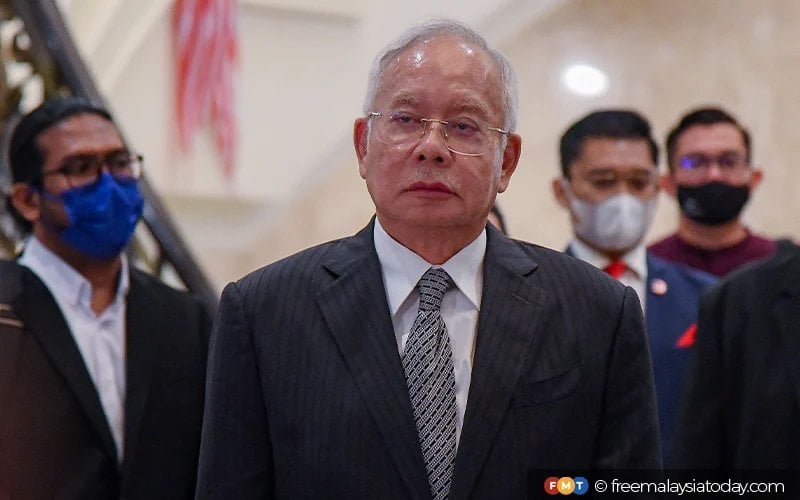
PETALING JAYA: The Malay rulers and governors as heads of their respective states are expected to act fairly and judiciously when considering applications for pardon, a former attorney-general (AG) said.
Abu Talib Othman said the power to grant mercy is vested in the heads of state in their capacity as a fountain of justice. Their power includes granting various forms of clemency, including a full pardon.
“They are expected to act fairly and judiciously and not at their individual whims and fancies,” he told FMT.
Abu Talib, who served as AG between 1980 and 1993, said this when asked whether heads of state have absolute discretion as to whether to grant a pardon or act on advice of their respective pardon boards.
The issue has been widely debated recently following the decision of the Umno Supreme Council to petition the Yang di-Pertuan Agong to consider granting former prime minister Najib Razak a royal pardon.
Umno secretary-general Asyraf Wajdi Dusuki said the Supreme Council will seek an audience with the King to present a memorandum pleading for a pardon for Najib.
Abu Talib said the pardon provisions in the Federal Constitution suggest that the pardons boards’ advice is not binding on the heads of state, although they are expected to consider advice given.
“The purpose of setting up a pardons board in each state is to advise the head of state to consider the facts and circumstances of each case before arriving at a decision,” he added.
Abu Talib was a prosecutor when former Selangor menteri besar, the late Harun Idris, was convicted of corruption in the late 1970s.
He was the AG when former youth and sports minister, the late Mokhtar Hashim, was sentenced to death for the murder of then Negeri Sembilan legislative assembly speaker, Taha Talib, in 1982.
Both were granted pardons only after they had served lengthy jail terms.
Abu Talib said that under Article 42(9) each pardons board must consider a written opinion drawn up by the AG before making its recommendation in any case.
In a majority decision on March 31, the Federal Court dismissed Najib’s bid to review his conviction and sentence.
Chief Judge of Sabah and Sarawak Abdul Rahman Sebli, the sole dissenting judge on the five-member panel, said the court’s refusal to grant an adjournment of the main appeal had deprived Najib of his right to be represented by an effective counsel.
He also said he found nothing in the materials before the court to suggest that Najib’s defence team, which was revamped three weeks prior to the appeal, was seeking an adjournment as part of a “ploy” or “strategy” to delay the hearing.
The other four judges who heard the application to review were Justices Vernon Ong, Rhodzariah Bujang, Nordin Hassan and Abu Bakar Jais.
Najib was convicted in July 2020 on charges of abuse of power, money laundering and criminal breach of trust over SRC funds amounting to RM42 million.
He was sentenced to 12 years’ jail and fined RM210 million. He began serving his prison term on Aug 23, last year, after the Federal Court affirmed conviction and sentence of two lower courts (High Court and Court of Appeal). - FMT



No comments:
Post a Comment
Note: Only a member of this blog may post a comment.